
table of contents
- Plants that do not like aphids from A to N
- O to Z
- frequently asked Questions
Some plants are spared from aphids (aphidoidea) when they are cooked because they have an intense smell. This property can be used specifically in mixed cultures to protect plants susceptible to lice.
In a nutshell
- Plant intensely fragrant herbs against aphids
- annual herbs well suited for vegetable beds
- some protective plants are themselves susceptible to pests
- Mediterranean herbs are used as an annual culture for vegetable beds
Plants that do not like aphids from A to N
Nettle (Urtica dioica)
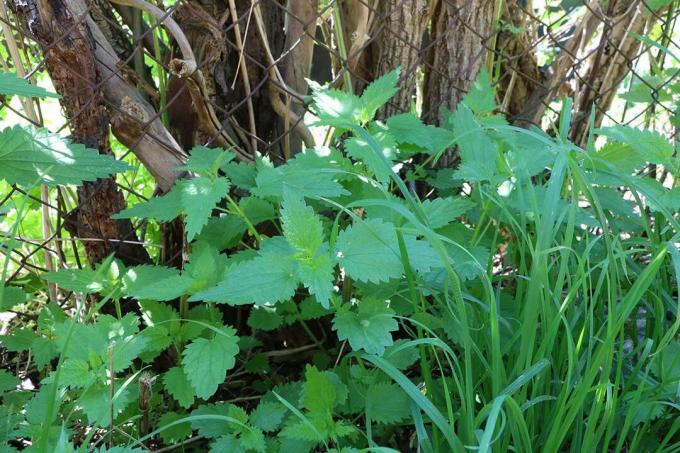
- protects fruit tree crops from aphids
- perennial
- multiplies by itself via seeds or runners
- Mow twice a year
Savory (Satureja montana)
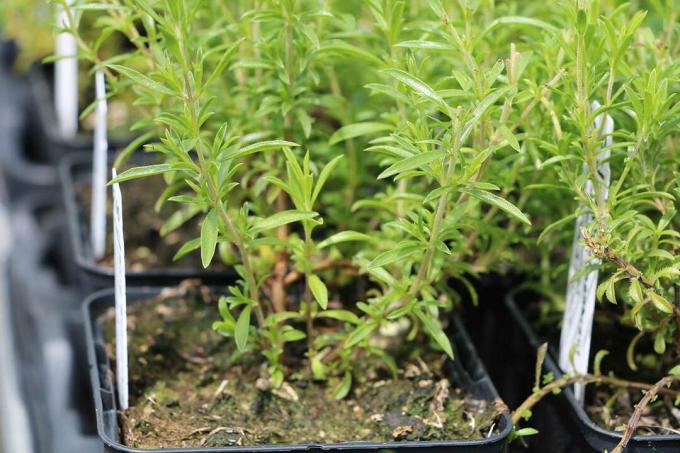
- drives away lice from beans
- annual or perennial varieties
- Increase annual varieties by sowing
- Propagate perennial varieties by division
- can be processed with beans
- Flowers attract beneficial insects
Garden cress (Lepidium sativum)

- is avoided by aphids because of their ingredients
- annual
- Propagation by sowing
- Self-sowing possible during the year
- undemanding culture
- short cultivation time
- Do not plant in mixed culture with other cruciferous plants
Oats (Avena sativa)
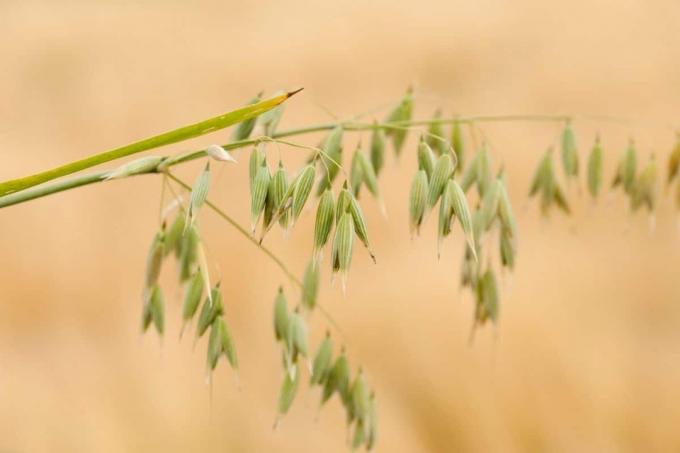
- protects against lice only to a limited extent
- annual
- Propagation by sowing
- good neighborhood with broad beans
- suitable as green manure
- Harvestable oat green
- Oat seeds can only be used with suitable equipment
Chervil (Anthriscus cerefolium)
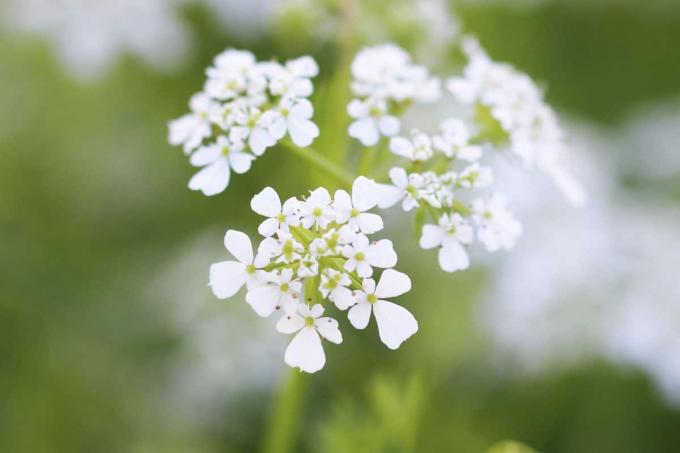
- biological agent against lice in cabbage species
- prevents aphid infestation in lettuce
- annual
- Propagation by sowing
- multiplies by self-sowing
- Only cover thinly with soil when growing
Tip: Chervil in cabbage plants not only helps against aphids, but also prevents infestation by cabbage whites.
Garlic (Allium sativum)
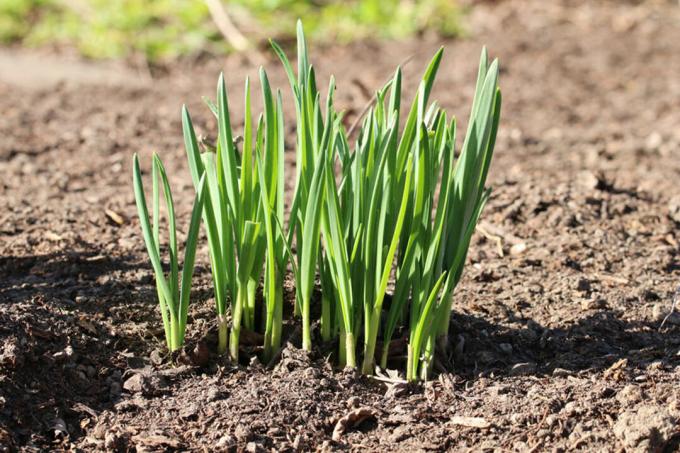
- prevents aphids in strawberries
- annual or biennial
- Propagation via seeds, bulbs or onions
- Can be grown in autumn or spring
- strengthens plants in the immediate vicinity
- fungicidal properties
Lavender (Lavandula angustifolia)
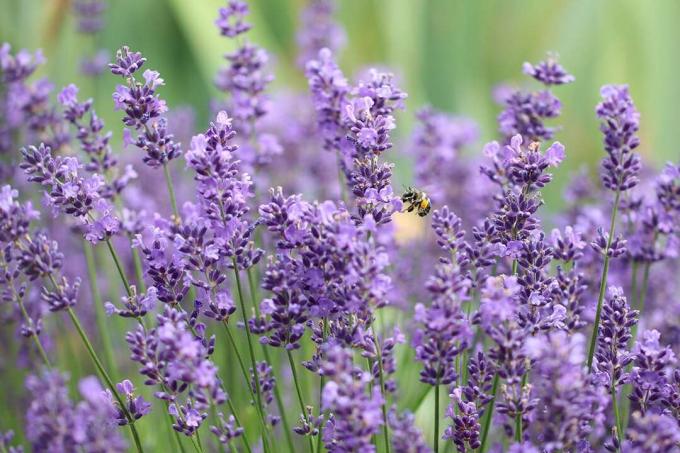
- protects roses from aphids
- perennial
- can be propagated via cuttings
- good underplanting for perennial plants
- prefers sunny locations
- Lavender brew can be used as a spray against aphids
- Flowers popular with bees and butterflies
Tip: Underplanting lavender and sage not only keep aphids away, they can also be used to suppress weeds in the perennial bed.
Mint (mentha)
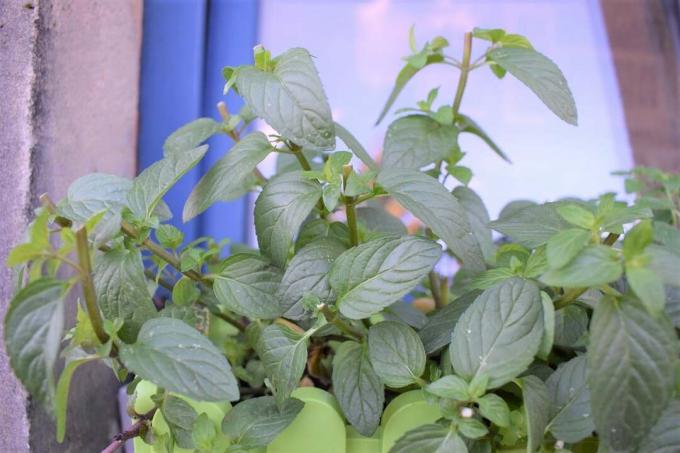
- Smell works against aphids
- perennial
- Propagation via cuttings or by division
- partially spreads strongly
- Prefer peppermint (Mentha × piperita)
Note: Some Mint types are themselves susceptible to aphids. This includes apple mint, for example.
O to Z
Oregano (Origanum vulgare)

- Smell drives away aphids
- annual or multi-year
- Propagation by sowing or dividing
- prefers poor and sunny locations
- ideal underplanting with roses
Parsley (Petroselinum crispum)

- is avoided due to the ingredients of aphids
- annual; blooms in the second year
- Propagation by sowing
- needs nutrient-rich and slightly moist soils
- susceptible to voles
- limited frost-resistant
Rosemary (Rosmarinus officinalis)
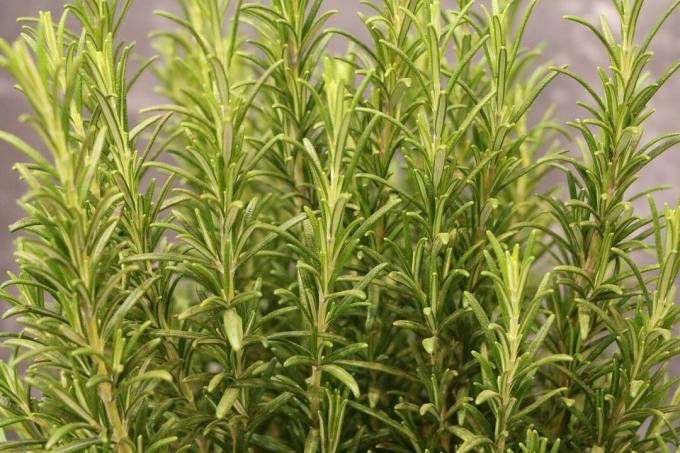
- essential oils drive away aphids
- perennial
- Propagation via cuttings
- limited frost-resistant
- Needles can be used as a brew against aphids
Sage (Salvia officinalis)

- essential oils drive away aphids
- perennial
- Propagation via seeds or cuttings
- suitable as underplanting for perennial shrubs
- preferred sunny locations
- good insect plant
Tagetes (Tagetes)

- Smell drives away aphids
- annual
- Propagation by sowing
- drive away different pests
- prone to snails
- open varieties of limited interest to insects
Thyme (thymus vulgaris)

- Essential oils have a protective effect on aphids
- perennial
- Propagation via offshoots
- moderately nutrient-rich soils preferred
- preferred sunny locations
- ideal for sunny shrub beds
- popular insect plant
Wormwood (Artemisia absinthium)

- intense smell drives away aphids
- perennial
- Propagation by sowing or dividing
- prevents ants and fleas
- Herb for teas as a biological remedy against lice
Hyssop (hyssopus officinalis)
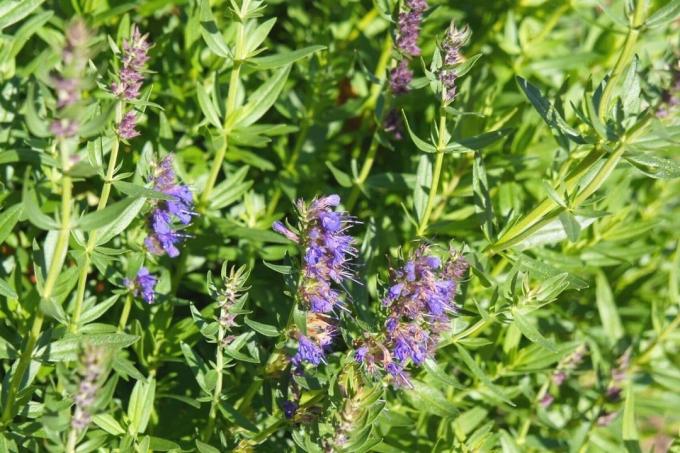
- Smell drives away aphids
- annual or multi-year
- Propagation by sowing or dividing
- annual species ideal for vegetable beds
- popular plant with insects
Onions (Allium cepa)
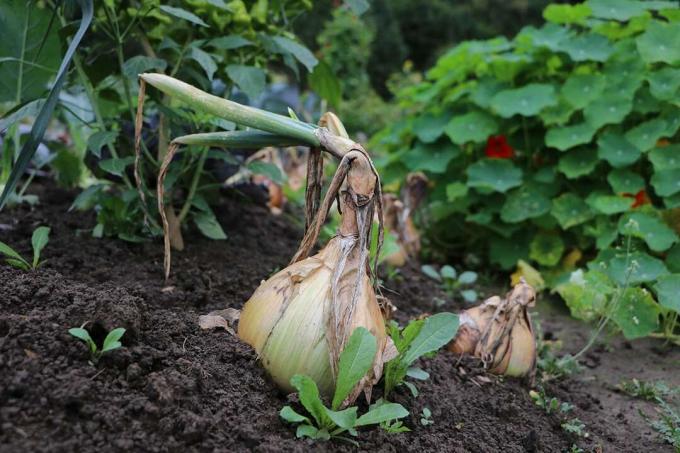
- Smell has a protective effect on aphids
- annual or biennial
- Propagation via seeds or onions
- Cultivation possible in autumn of the previous year or in spring
- Mixed culture with carrots is ideal
- high water demand
- medium nutritional requirements
frequently asked Questions
One indoor plant that has a strong defensive effect on aphids is the rose frankincense plant (Coleus venteri). Similar to sage or lavender, it has an intense smell with which it is in direct company to endangered houseplants, protecting them from an infestation or, in the event of an infestation, the lice drives out.
No, since the lice are also able to fly to a limited extent on the ground, a change of location would not help. However, you can put protective plants in pots and place them next to infested plants as required. This is particularly useful for perennial herbs such as lavender or sage, which you can use to protect vegetable crops.
Wild plants only help to a limited extent against aphids. You can swap some crops for wild plants and instead, for example, the meadow sage (Salvia pratensis), the sand thyme (Thymus serpyllum) or the horse mint (Mentha longifolia) use. The plants are then ideal in a perennial bed as protection for roses or other ornamental shrubs.
Yes, many species of ants enter into a symbiosis with the aphids. If you discover ants on the plants together with aphids, it is helpful if you drive the ants away at the same time. The neighborhood also helps here with intensely fragrant herbs such as lavender, sage or thyme, which the ants do not like. Tansy (Tanacetum vulgare) also helps drive ants away, but is itself susceptible to aphids.



